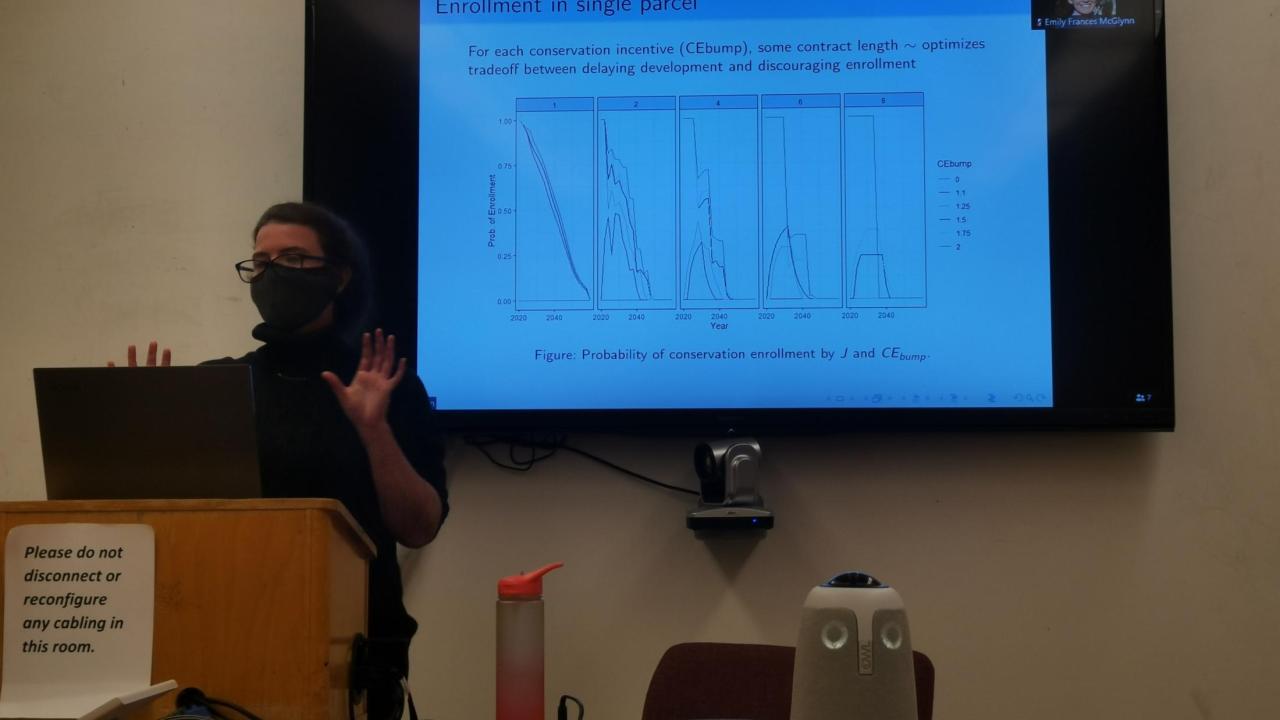
Lab Seminar - Conserving carbon: spatially-explicit dynamic programming for agricultural conservation policy
Emily McGlynn shared her research on land use and conservation. Local governments are increasingly interested in managing GHG emissions through land use policy and agricultural conservation incentives. Emily is working with Santa Clara County (home to Silicon Valley) to evaluate how modifying conservation programs can reduce agricultural land conversion and avoid GHG emissions due to urban sprawl. Using forty years of real estate transaction data and a spatially-explicit dynamic programming model, Emily starts by evaluating the effects of shortening conservation contract length: requiring shorter landowner commitments to agricultural land use may increase the risk of development for individual parcels but will also increase program enrollment rates. Emily posits that, for a given conservation incentive level, some optimal contract length can minimize county-wide agricultural land conversion.